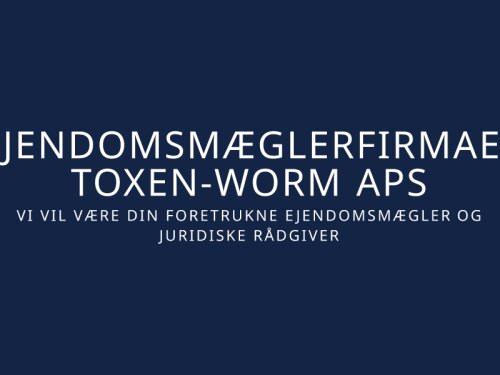Best Adoption Lawyers in Ringe
Share your needs with us, get contacted by law firms.
Free. Takes 2 min.
Free Guide to Hiring a Family Lawyer
List of the best lawyers in Ringe, Denmark
About Adoption Law in Ringe, Denmark
Adoption in Ringe follows Danish national law and procedures, administered locally through the Faaborg-Midtfyn municipality and resolved by the Danish courts where required. Whether you are seeking to adopt a child from within Denmark, to adopt a step-child, or to pursue intercountry adoption, the process combines social-services assessments, parental consents, legal clearances, and a final court decision. Denmark applies child-focused principles - the child’s best interest is the guiding criterion - and the same basic legal framework applies across towns such as Ringe.
Why You May Need a Lawyer
Adoption can involve sensitive factual, procedural and legal issues. You may need a lawyer if you are facing any of the following situations:
- Complex parental-consent issues - for example, a parent who withholds consent, a parent whose parental rights may need to be terminated, or unclear parentage.
- International or intercountry adoption - these cases have extra legal steps, documentation and compliance with international treaties such as the Hague Convention.
- Step-parent or partner adoptions where family relations, inheritance or custody rights must be clarified.
- Challenges with the municipal assessment - if the municipality refuses to approve you as prospective adoptive parents or places conditions you dispute.
- Court proceedings - a lawyer will prepare petitions, represent you at hearings and help ensure the court has the necessary evidence of suitability and consent.
- Cross-border issues - for example, if a child or a parent is living abroad, or if recognition of foreign decisions is needed.
- Health, immigration or citizenship problems - adoption can affect the child’s citizenship and residence rights, and that can require legal coordination.
An experienced family/adoption lawyer helps you understand the law, gather correct documents, meet deadlines and present the strongest legal case while protecting the child’s best interest and your rights.
Local Laws Overview
Key aspects of Danish adoption law that are especially relevant if you live in or near Ringe include:
- National regulation - Adoptions are governed by Danish national law rather than municipal law, but the municipality handles assessments, counseling and many administrative steps in the process.
- Municipal role - The local social-services office conducts a suitability assessment of prospective adoptive parents. This includes interviews, home visits, background checks and preparations for adoptive parenting.
- Consent requirements - Adoption generally requires the informed consent of the child’s legal parents. In some limited circumstances the court may allow adoption without consent - for example if parental rights have been lawfully terminated or the parent is unknown or unfit.
- Childs best interest - Every decision is based on the child’s best interest, including attachment, stability and welfare considerations.
- Types of adoption - Common forms include domestic adoption, step-parent or partner adoption and intercountry adoption. Each type has particular procedural and documentary requirements.
- Intercountry adoption - Denmark implements the Hague Convention procedures for intercountry adoptions. Prospective adoptive parents must meet Danish suitability standards, and additional checks and approvals are required by the foreign authorities and Danish central authorities.
- Equality of applicants - Single persons and married or registered partners, including same-sex couples, can apply to adopt. The municipality assesses suitability without unlawful discrimination.
- Court decision - The final legal transfer of parental rights is made by a court. The court confirms that statutory requirements and consents are in place and that adoption serves the child’s welfare.
Frequently Asked Questions
What is the first step to start an adoption if I live in Ringe?
Contact the family or social-services office at Faaborg-Midtfyn municipality to request initial information and start the application process. The municipality will explain the local procedure, required documents and the assessment process for prospective adoptive parents.
Can single people or same-sex couples adopt in Denmark?
Yes. Danish law treats single persons and same-sex couples as potential adoptive parents. The municipality will assess suitability based on the child’s best interest rather than marital status or sexual orientation.
How long does the adoption process typically take?
Timelines vary widely depending on the type of adoption. Domestic and step-parent adoptions are often faster than intercountry adoptions. Expect several months to years for intercountry adoption due to foreign procedures, home studies, matching and travel. Your municipality or a lawyer can provide a more tailored timeline for your situation.
What documents are usually required?
Common documents include photo ID, residence and civil status documentation, health information, criminal-record checks, employment and financial information, and references. For international adoption, additional country-specific and central-authority documents are required. The municipality will give a detailed list.
Do both biological parents have to consent to an adoption?
Generally yes, biological parents with parental rights must give informed consent. In limited circumstances - for example where a parent’s rights have been lawfully terminated, the parent is unknown, or the parent is unfit - the court may allow adoption without consent. These situations are legally and factually complex and usually require legal advice.
Can I adopt a child from abroad while living in Ringe?
Intercountry adoption is possible, but it involves more steps: meeting Danish suitability requirements, complying with the sending country’s rules, and observing international conventions such as the Hague Convention where applicable. You will also need to arrange recognition of the adoption and the child’s residence and any citizenship matters.
What is the role of the court in an adoption?
The court issues the final legal decision transferring parental rights and responsibility to the adoptive parents. The court verifies that legal requirements, consent conditions and the child’s welfare considerations have been met.
How can a lawyer help with a contested adoption or withheld consent?
A lawyer can advise on legal options, draft petitions to the court, gather evidence about the child’s best interest, and represent you at hearings. In cases of withheld consent, the lawyer will evaluate whether grounds exist for the court to proceed without consent and will help prepare the legal argument and supporting evidence.
Are there fees I should expect in the adoption process?
There are administrative costs for assessments and official procedures. Intercountry adoption often involves additional fees for foreign authorities, translations, travel and legal services. Adoption lawyers charge for consultations and representation - ask for a clear fee estimate and whether fixed-fee options are available.
Where can I find support during the adoption process?
The municipality provides counseling and guidance. Many families also find it helpful to consult experienced adoption lawyers, support groups for adoptive families, and child-welfare organisations for practical and emotional support through the process.
Additional Resources
Useful local and national resources for people in Ringe seeking adoption information and legal advice include:
- Your local Faaborg-Midtfyn municipality - the family or social-services department handles local adoption assessments and counselling.
- Municipal family services and child-protection teams - for information about child welfare requirements and home studies.
- National authorities responsible for social services and adoption - for guidance on intercountry adoption procedures and national rules.
- Family and adoption law lawyers - look for lawyers with experience in adoption, family law and international child matters.
- Child welfare organisations and support groups - organisations that provide practical and emotional support to prospective and adoptive families.
- Hague Convention information - for anyone pursuing intercountry adoption, learn about the international framework that Denmark follows.
- Ankestyrelsen - the appeals body for certain social-service decisions - if you need to appeal a municipal decision.
Next Steps
If you are considering adoption in or near Ringe, follow these practical next steps:
- Contact Faaborg-Midtfyn municipality to request official guidance and the application package for prospective adoptive parents.
- Gather key documents and begin any necessary background checks and health assessments early.
- Consider an initial consultation with a lawyer who specialises in family and adoption law - choose someone familiar with municipal procedures and intercountry matters if applicable.
- Attend municipal information sessions and counselling - these help you understand expectations and prepare for the assessment.
- If adopting from abroad, research the sending country’s rules, prepare for a longer timeline and confirm Hague Convention applicability where necessary.
- Keep clear records of all communications and documents, and ask for written confirmations of important steps and decisions.
- Prioritise the child’s welfare - whether legal, medical or emotional issues arise, plan to address the child’s needs and stability throughout the process.
If you want help finding a local lawyer or preparing for a municipal assessment, consider contacting a qualified family-law attorney for an initial case review so you understand the specific steps and likely timeline for your situation.
Lawzana helps you find the best lawyers and law firms in Ringe through a curated and pre-screened list of qualified legal professionals. Our platform offers rankings and detailed profiles of attorneys and law firms, allowing you to compare based on practice areas, including Adoption, experience, and client feedback.
Each profile includes a description of the firm's areas of practice, client reviews, team members and partners, year of establishment, spoken languages, office locations, contact information, social media presence, and any published articles or resources. Most firms on our platform speak English and are experienced in both local and international legal matters.
Get a quote from top-rated law firms in Ringe, Denmark — quickly, securely, and without unnecessary hassle.
Disclaimer:
The information provided on this page is for general informational purposes only and does not constitute legal advice. While we strive to ensure the accuracy and relevance of the content, legal information may change over time, and interpretations of the law can vary. You should always consult with a qualified legal professional for advice specific to your situation.
We disclaim all liability for actions taken or not taken based on the content of this page. If you believe any information is incorrect or outdated, please contact us, and we will review and update it where appropriate.









